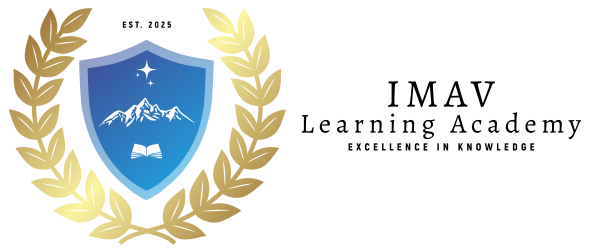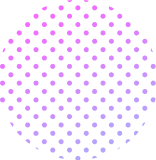The New Literacy
Take a moment to consider your last 24 hours. Did you stream a movie? Order food through an app? Navigate with GPS? Participate in a video call? Check the balance on a digital banking platform? Each of these actions, so seamlessly woven into the fabric of modern life, is powered by a silent, invisible force: code. Software is no longer just a part of our economy; it is the underlying operating system of our entire civilization. It dictates how we work, learn, communicate, and create.
This brings us to one of the most pressing questions for students, parents, and professionals in 2025: in a world where technology is so advanced, is learning the intricate art of programming still necessary? With the explosive rise of Artificial Intelligence that can write code on command, is it a skill on the verge of obsolescence?
The answer, unequivocal and more urgent than ever, is no. Not only is programming not obsolete, but it has transcended its status as a specialized technical skill to become the new fundamental literacy. It is the ability to not just consume the digital world, but to understand and shape it. This is not just about securing a high-paying job; it’s about developing a critical mindset, future-proofing your intellect, and learning the language of creation itself. And as for AI, it isn’t the replacement programmer we fear; it’s the revolutionary new tool that will make human programmers more powerful than ever before. This deep dive will explore every facet of why, in 2025, learning to code is the single most important investment you can make in your future.
The Co-Pilot in the Cockpit: Demystifying AI’s True Role in Programming
Let’s address the elephant in the room immediately. AI tools like ChatGPT-4, GitHub Copilot, and others have demonstrated a breathtaking ability to generate functional code from a simple text prompt. It’s easy to see this and conclude that the human programmer’s days are numbered. However, this perspective fundamentally misunderstands the nature of programming. Writing code is merely one part of a much larger, more complex process.
Think of it like this: an advanced AI is the co-pilot in a commercial airliner. It’s an incredibly powerful and useful assistant. The co-pilot can handle standard procedures, manage checklists, calculate fuel consumption, and even fly the plane under normal conditions. But it is the human captain who holds the ultimate responsibility. The captain understands the destination (the business goal), interprets the weather radar (market context), communicates with air traffic control (stakeholders), and, most importantly, is the one you want at the controls when unexpected turbulence hits or an engine fails (a critical, novel bug appears).
Where AI Excels: The Assistant’s Tasks
AI is a phenomenal tool for augmenting a developer’s workflow. It excels at tasks that are repetitive, pattern-based, or require recalling vast amounts of information instantly.
- Boilerplate Code: Setting up a new project, writing standard functions, creating configuration files.
- Syntax and Translation: Quickly converting a code snippet from Python to JavaScript or helping you remember the exact syntax for a library function.
- Code Explanation: Taking a complex function and explaining what it does in plain English, which is a fantastic learning aid.
- Unit Test Generation: Writing basic tests to check if a function behaves as expected under normal conditions.
- Simple Algorithm Implementation: Generating a standard sorting algorithm or a function to find an item in a list.
By offloading these tasks, AI frees up the human developer’s most valuable resource: cognitive bandwidth. It allows us to spend less time on the “how” and more time on the “why” and “what if.”
The Irreplaceable Human Programmer: The Captain’s Role
The true work of a software engineer goes far beyond what current AI can comprehend. The core of programming is not typing; it’s thinking. Here is where the human remains indispensable:
- Problem Decomposition & Architectural Design: This is the most critical skill. A client doesn’t say, “Write me a function with three parameters.” They say, “I need a system to manage my entire company’s logistics.” The programmer’s job is to take that vast, ambiguous problem and break it down into a logical, scalable, and secure software architecture. This requires foresight, experience, and a deep understanding of trade-offs—skills that are far beyond mere pattern matching.
- Understanding Business Context and User Empathy: Why is this feature being built? Who is the end-user? What are their frustrations and goals? A great programmer builds software for people. They can put themselves in the user’s shoes to design an interface that is intuitive and a system that truly solves a real-world problem. AI has no empathy.
- Creative and Novel Problem-Solving: What happens when you encounter a bug that has never been seen before? Or when you need to invent a new algorithm to solve a problem that existing libraries can’t handle? This requires genuine creativity, intuition, and the ability to “think outside the box.” AI is trained on existing data; it struggles to create truly novel solutions.
- System Integration and Debugging: Modern applications are not monolithic. They are complex ecosystems of microservices, databases, APIs, and front-end frameworks. A human developer’s job is to make these disparate parts communicate reliably. When a bug occurs, it could be in any one of these systems or in the connections between them. Debugging this requires a holistic understanding and a methodical process of elimination that AI cannot yet replicate.
- Ethical and Security Considerations: A programmer must consider the ethical implications of their code. Is the data being handled securely? Could this algorithm lead to biased outcomes? What are the long-term societal impacts? These are deeply human questions that require moral and ethical reasoning.
AI won’t replace good programmers. But programmers who use AI will replace programmers who don’t.
The future, therefore, is not human vs. AI. It’s human + AI. The new baseline for a competent developer in 2025 is not just knowing how to code, but knowing how to effectively leverage AI as a productivity multiplier. AI raises the bar; it doesn’t remove the playing field.
Forging the Future: Why Every Student from Grade 7 to 12 Must Learn Programming
The imperative to learn programming is most acute for young minds. For students in middle and high school, coding is not just a vocational skill; it is a foundational academic discipline that builds the cognitive architecture necessary to thrive in the 21st century. To think of coding as only being for future software engineers is like thinking learning to write is only for future novelists. It’s a fundamental tool for thought.
Beyond the Keyboard: Cultivating the Computational Mind
The act of programming forces the brain to develop in unique and powerful ways. It’s a mental gymnasium that strengthens muscles you might not even know you have.
- Systematic Problem-Solving: At its core, all programming is about breaking down a large, seemingly impossible problem into a series of small, perfectly logical, and achievable steps. This skill—decomposition—is the single most valuable takeaway from learning to code. It is applicable everywhere, from writing a research paper to planning a business or even fixing a leaky faucet.
- Algorithmic and Logical Reasoning: Programming is applied logic. You learn to think in terms of conditions (if/else), loops (for/while), and variables. You build a rigorous mental model where cause and effect are absolute. This sharpens a student’s ability to reason, analyze arguments, and identify fallacies in any subject.
- Creativity on a Digital Canvas: Many people mistakenly see programming as a cold, purely logical discipline. In reality, it is one of the most creative mediums ever invented. You start with a blank screen and, using only logic as your paintbrush, you can create anything you can imagine: a game, a piece of interactive art, a tool to help your community, a scientific simulation. It is creation from pure thought.
Persistence and Resilience in the Face of Failure: Nothing teaches humility and persistence quite like debugging. You will write code that you are certain is correct, only to have it fail. You will spend hours hunting for a single misplaced semicolon. This process is not frustrating; it’s formative. It teaches students that failure is not an endpoint but a data point. It builds the resilience to try, fail, analyse, and try again—a critical life skill in any endeavour.
The Language of the Modern World
In the 20th century, literacy meant the ability to read and write the printed word. It was the key to unlocking knowledge and participating in society. In the 21st century, the definition of literacy must be expanded to include a basic understanding of computational principles. Our world is governed by algorithms—from the news you see on social media to the route your GPS chooses.
A student who doesn’t understand the basics of programming is like a citizen who cannot read. They can live in the world, but they cannot fully understand the forces that shape it, nor can they actively participate in building it. Learning to code demystifies technology. It turns the “magic” of a smartphone into a set of understandable logical processes, empowering students to be active creators, not just passive consumers.
Unlocking and Enhancing Other Academic Disciplines
Programming is not a silo. It is a meta-skill that enhances learning in almost every other subject.
- Mathematics: Abstract concepts like variables, functions, and vectors become concrete and interactive when implemented in code.
- Science: Students can build simulations to model a planetary orbit, a chemical reaction, or the spread of a disease, gaining a much deeper and more intuitive understanding than they could from a textbook alone.
- Art and Music: Generative art allows students to use code to create stunning visual patterns. They can program synthesizers to explore the mathematical relationships in music theory.
- Humanities: They can write scripts to analyze text from historical documents, identifying patterns in language that would be invisible to the naked eye.
[Para]
By learning to code between grades 7 and 12, students don’t just open the door to a career in tech; they open doors to becoming better scientists, more analytical historians, more innovative artists, and more prepared citizens of the future.
A Grand Tour of the Programming Universe: A Map for 2025
“Learning to program” is a broad statement, much like “learning to speak a language.” The key is to understand which language is spoken in the country you want to visit. The world of programming is a vast universe of different languages, each designed for a specific purpose. Here is a tour of the major constellations.
The Architects of the Web: Front-End and Back-End
This is the domain that powers the entire internet.
- The Foundational Trio (HTML, CSS, JavaScript): Every single interactive website is built on these three. HTML is the skeleton that structures the content. CSS is the clothing, styling everything from colors and fonts to layouts. JavaScript is the nervous system, making the site interactive, responsive, and dynamic. For anyone interested in the web, these are non-negotiable.
- Python (with Django/Flask): On the server-side (the back-end), Python has become incredibly popular due to its clean syntax and powerful frameworks. Django and Flask allow developers to build the logic that handles databases, user accounts, and business operations quickly and efficiently.
- Node.js: This technology allows developers to use JavaScript on the back-end, which is a game-changer. It means a developer can use a single language for both the front-end and back-end of a website, simplifying the development process.
The Brains Behind the Data: AI, Machine Learning & Data Science
This is perhaps the fastest-growing and most exciting field in tech.
- Python: Here, Python is the undisputed king. Its dominance is thanks to an unparalleled ecosystem of libraries. Pandas and NumPy are the workhorses for manipulating and analyzing massive datasets. Scikit-learn provides easy-to-use tools for traditional machine learning. And TensorFlow and PyTorch are the deep learning frameworks that power everything from image recognition to large language models like ChatGPT.
- R: While Python is more versatile, R remains a favorite within academic and statistical communities for its powerful data visualization and statistical modeling capabilities.
The Builders of Worlds: Game Development
This domain requires a ruthless focus on performance.
- C++: This is the heavyweight champion of game development. It offers the highest level of performance and control, making it the language of choice for building major game engines like Unreal Engine and for developing the core systems of most AAA titles.
- C# (with Unity): The Unity Engine, which powers a huge number of indie games and mobile games, uses C# as its primary scripting language. It offers a great balance of performance and ease of use, making it a fantastic entry point into the world of game development.
The Heart of the Machine: Systems and Embedded Programming
This is the low-level code that makes our hardware work.
- C: The grandfather of modern programming. It’s incredibly fast and efficient, which is why it’s still used to write the core of operating systems, device drivers, and firmware for embedded systems (the tiny computers in your car, microwave, or router).
- C++: Offers all the power of C but adds the organizational benefits of Object-Oriented Programming, making it ideal for more complex systems software, like web browsers and databases.
Rust: A modern systems language that is gaining immense popularity. Its key feature is a focus on memory safety. It is designed to prevent the types of common bugs that plague C and C++ code, making it a strong contender for the future of secure, high-performance systems.
The Apps in Your Palm: Mobile Development
- Kotlin (for Android): Google’s official and preferred language for Android development. It’s a modern, concise, and safe language that interoperates perfectly with the older Java codebase.
- Swift (for iOS): Apple’s powerful and intuitive language for building apps for the iPhone, iPad, and Mac. It was designed for safety, speed, and modern development practices.
The Programmer’s Mindset: The Lifelong Intangible Skills
The most profound benefits of learning to code are the ones that you carry with you even when you’re not in front of a computer. It permanently upgrades your thinking process. You develop a “programmer’s mindset,” which includes:
- Abstract Thinking: The ability to visualize and design complex, intangible systems in your mind.
- Meticulous Attention to Detail: Programming is a discipline of precision. A single misplaced character can have cascading effects. This trains you to be more careful and exact in all your work.
- Structured Communication: When you have to explain a complex technical problem or system to a colleague, you learn to communicate with clarity, logic, and structure.
- Resourcefulness: When you hit a roadblock, you learn where to look for answers—documentation, forums, communities. You become an expert at finding the information you need.
- The Habit of Lifelong Learning: The world of technology is in a constant state of flux. To be a programmer is to be a perpetual student. You learn how to learn new languages, frameworks, and technologies efficiently, a skill that is invaluable in any career.
The Digital Economy: Your Ticket to Career, Innovation, and Opportunity
While the intellectual benefits are profound, the practical, economic reasons for learning to code are undeniable. Programming proficiency is your entry ticket to the most dynamic and fastest-growing sector of the global economy. The demand for skilled developers far outstrips the supply, leading to high job security and competitive salaries.
Furthermore, programming is the language of entrepreneurship in the 21st century. With a laptop and an internet connection, an individual with coding skills has the power to build a product, launch a service, and create a business that can reach a global audience. It is an unprecedented democratization of the means of creation. You are no longer limited by the need for factories or physical capital; your primary asset is the knowledge in your head and your ability to translate it into functional code.
Your Journey Begins Now
The evidence is overwhelming. Learning to program in 2025 is not a whimsical hobby or a niche skill. It is a fundamental literacy, a cognitive training regimen, a pathway to immense creative expression, and a ticket to economic opportunity. It is the framework for future-proofing your mind against a world of accelerating change.
The rise of AI does not diminish this reality; it amplifies it. AI automates the mundane, freeing us to focus on the truly human aspects of creation: architecture, creativity, and problem-solving. The challenge is not to compete with AI, but to become the skilled human captain who can leverage it as the most powerful co-pilot ever conceived.
The journey may seem long, but like any great endeavor, it begins with a single, decisive step. At IMAV Learning Academy, we understand this journey intimately. Our courses are designed to do more than just teach you syntax; they are built to cultivate the computational mindset. With structured curricula that guide you from foundational principles to advanced application, expert instructors who are passionate about their craft, and a supportive community of fellow learners, we provide the map and the compass for your expedition into the digital universe.
Don’t just be a consumer of the digital world. Learn the language of its creation. It’s time to start building.



